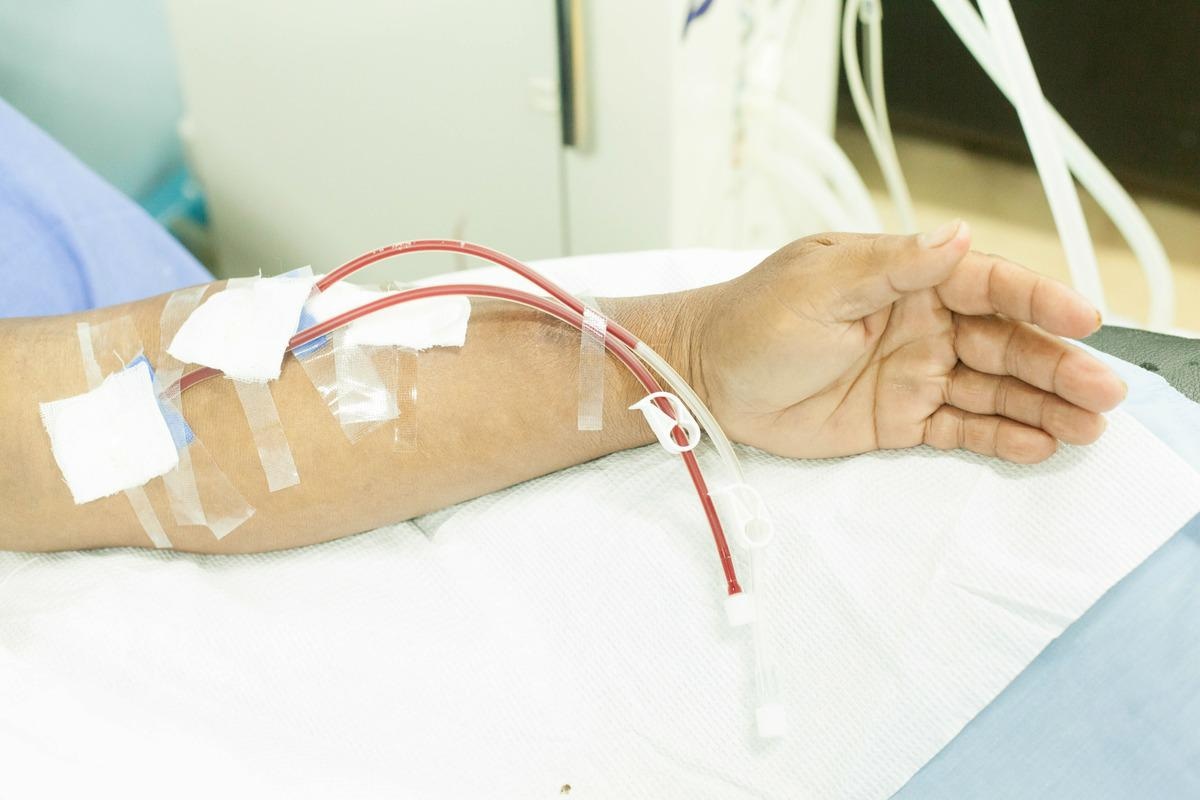The decision to equip immunocompromised people with a third (booster) shot of an mRNA vaccine was taken by health authorities in mid-August 2021. However, it did not definitively include patients undergoing dialysis, with an increased risk for poor outcomes from coronavirus disease 2019 (COVID-19).
 Study: Seroresponse to third doses of SARS-CoV-2 vaccine among patients receiving maintenance dialysis. Image Credit: korokoso/Shutterstock
Study: Seroresponse to third doses of SARS-CoV-2 vaccine among patients receiving maintenance dialysis. Image Credit: korokoso/Shutterstock
There has been increased morbidity and mortality from COVID-19 reported among patients undergoing maintenance dialysis, which is why there is a need to assess the impact of booster doses in this patient population.

 This news article was a review of a preliminary scientific report that had not undergone peer-review at the time of publication. Since its initial publication, the scientific report has now been peer reviewed and accepted for publication in a Scientific Journal. Links to the preliminary and peer-reviewed reports are available in the Sources section at the bottom of this article. View Sources
This news article was a review of a preliminary scientific report that had not undergone peer-review at the time of publication. Since its initial publication, the scientific report has now been peer reviewed and accepted for publication in a Scientific Journal. Links to the preliminary and peer-reviewed reports are available in the Sources section at the bottom of this article. View Sources
Researchers thus recently published a report in the preprint server medRxiv* wherein they examined the seroresponse to an additional dose of vaccine in patients on maintenance dialysis.
Study details
Researchers examined the seroresponse to an additional dose of severe acute respiratory syndrome coronavirus 2 (SARS-CoV-2) mRNA vaccine among patients at Dialysis Clinic, Inc. (DCI), catering for approximately 15,000 patients at 260 outpatient dialysis clinics in 29 states.
The study included all adult patients who received an additional SARS-CoV-2 vaccine dose after completion of the initial double-dose regimen and had at least one anti-spike IgG level checked both between the initial dosing and the additional dose and at least 14 days after the additional dose. The DCI electronic health record obtained demographic and clinical data, vaccination dates, history of COVID-19 diagnosis, and anti-spike IgG titer results.
Researchers assessed the patient population using hypothesized protective anti-spike protein IgG antibody threshold of 7 based on their previous work. For each patient, researchers identified three titer levels of interest:
- the maximum level of seroresponse reached at least 14 days after completion of the initial double-dose regimen but before the booster dose (labeled as “Max Pre”);
- the last titer measured before the booster vaccine dose (labeled as “Last Pre”); and
- the first titer measured after the booster dose (labeled as “First Post”).
In all analyses, strata of ≥20, 7-<20, 1-<7, and <1 Index were used. The threshold of 20 reflected the semi-quantitative nature of the assay used; the threshold of 7 represented a hypothesized level of protection from severe disease. The threshold of 1 reflected the manufacturer-recommended lower limit for defining seroresponse.
Among 395 patients receiving an mRNA vaccine regimen who were assessed, 384 (97%) had seroresponse ≥7 following the third booster dose. Among those with suboptimal (peak <7) and minimal (peak <1) seroresponse to an initial mRNA vaccine regimen, the rate of seroresponse ≥7 following a third dose was 97% (36 of 37) and 64% (14 of 22), respectively.
Given ongoing high rates of COVID-19 and rapidly waning immunity after an initial vaccine series, we recommend a third mRNA vaccine dose be standard for all patients receiving maintenance dialysis.
Implication
The study was crucial in determining the role of booster shots in maintenance dialysis patients, including a much-needed population of immunocompromised patients to the dataset. A third dose of the mRNA SARS-CoV-2 vaccine was associated with a high prevalence of seroresponse.
The booster dose successfully induced a robust seroresponse even among those with lapsed seroresponse. This highlighted the criticality of booster doses to maximize and sustain the protection of maintenance dialysis patients.
In the current scenario with the omicron-variant being highly transmissible, patients with increased risk like those on maintenance dialysis might as well be included in the booster-dose regimen.

 This news article was a review of a preliminary scientific report that had not undergone peer-review at the time of publication. Since its initial publication, the scientific report has now been peer reviewed and accepted for publication in a Scientific Journal. Links to the preliminary and peer-reviewed reports are available in the Sources section at the bottom of this article. View Sources
This news article was a review of a preliminary scientific report that had not undergone peer-review at the time of publication. Since its initial publication, the scientific report has now been peer reviewed and accepted for publication in a Scientific Journal. Links to the preliminary and peer-reviewed reports are available in the Sources section at the bottom of this article. View Sources